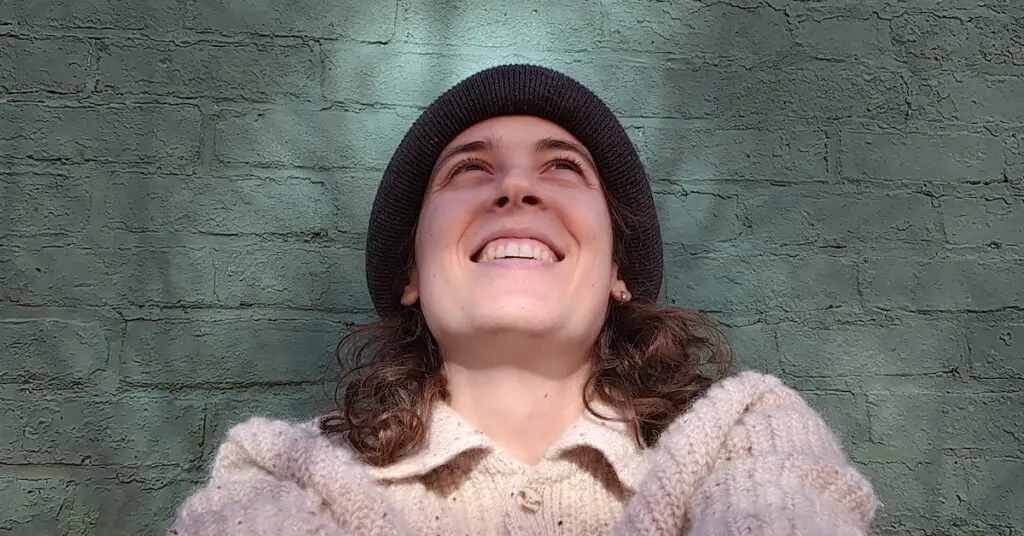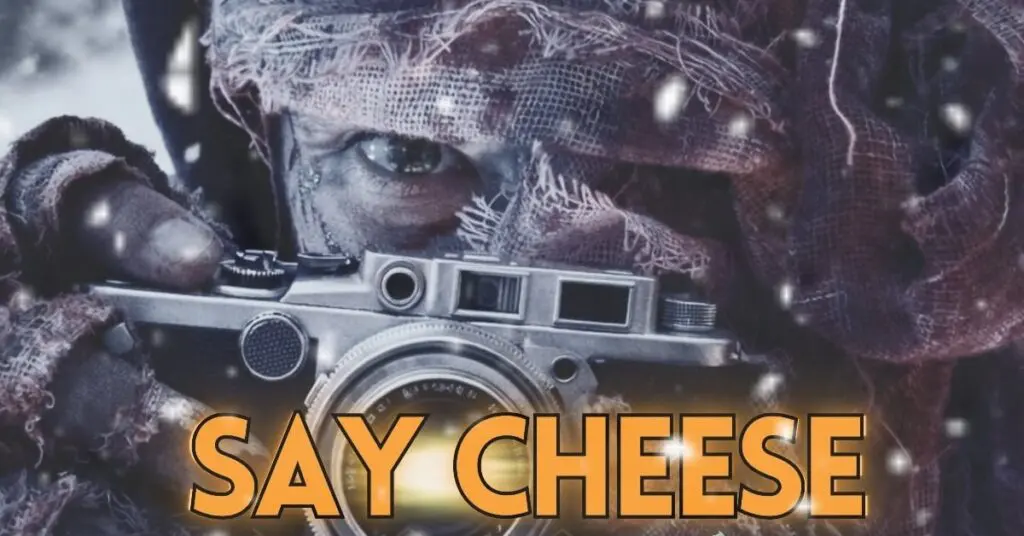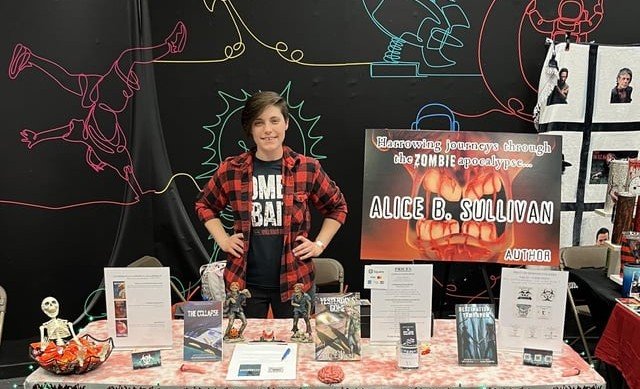Eric Beetner – an Xperience Interview
By Staff on December 9, 2024
Eric Beetner – an Xperience Interview – by Liam Sweeny.
RRX: Today, I saw a Facebook post you wrote where you spoke about being terrified to go looking for a job in your field now, and you’re an eight-time Emmy-nominated film editor, writer, and producer, with 30 years under your belt. How can you be afraid to try to find work now?
EB: It’s a complicated answer, but I’ll try to summarize it like this: I’ve worked freelance my whole career, going from show to show working for a few months at a time, hoping a show will get picked up for another season. That lifestyle is fraught with anxiety and uncertainty in the best years, but I’ve managed to work consistently for over two decades because I have a good track record, have been on some hit shows that went multiple seasons, and generally made good contacts by being good at my job. And it’s my choice, so I need to suffer the repercussions.
Since the takeover of the entertainment industry by streaming services (which are owned by tech companies, not traditional studios), there has been a seismic shift in how the business is run. Silicon Valley is all about “disrupting” business models (see what ride shares did to the taxi industry) so they bring a different mentality to TV and home entertainment.
With so much programming out there, all available at your fingertips, the pressure to create new shows isn’t as high. They also aren’t beholden to advertisers wanting to get their products in front of people, so the traditional Fall TV season is a relic of the past. But with that, went the certainty of when the work would be there. I’ve cut shows that have sat on the shelf at a streamer for more than a year. There’s little incentive to release them in a timely fashion.
They also only focus on the bottom line, so shows aren’t given a chance to grow an audience. They typically kill anything, even successful shows, after three seasons because it’s cheaper to develop something new, rather than pay people higher rates for a hit show.
Couple that with the strikes that slowed or shut everything down, plus the fact that streamers have been around long enough now that they can no longer function in the red (like so many tech companies do at the start), and they are all in a conservative spending mode.
For some reason, a big victim of that has been unscripted programming, which is where I mostly work.
After the strike of 2008, reality shows picked up because they didn’t have to pay writers and actors. That didn’t happen this time. The drop-off in production has been over 50%, which is unprecedented. You’ll have a bad year where there are 15-20% fewer jobs, but never anything like this.
Plus, everyone has noticed that episode orders are getting shorter. A TV season used to be 22 or 24 episodes long. Now if you get eight, you’re lucky. It means jobs are shorter and we’re out of work much quicker, on the hunt for the next gig.
Also, with eyes only on the bottom line, many productions are moving overseas. I know several game shows with American contestants and an American host that shoot in Ireland or Australia. It’s cheaper for them to fly people over than to shoot in L.A. We’ve lost a lot of production to Canada over the years, but most of those came back to L.A. to edit. No longer. The shows that shoot in other countries are also editing there.
2025 has a new slate of tax incentives to keep production stateside, but it might be too little too late. And it will take at least a year to ramp up productions to take advantage of those new incentives. A time frame most of us can’t wait out.
I know that’s a lot, but it all combines to a perfect storm of the simple fact that there are almost no jobs to be had out there. I compared it to Detroit in the 1970s when the auto industry packed up and left town. That city has never recovered.
RRX: A lot has happened in the past decade, let’s say. The dominance of streaming services, COVID, the SAG-AFTRA strike, and the rise of AI. What kind of looking glass has Hollywood gone through?
EB: I think Hollywood’s talent for putting on a good show hides these growing pains from the audience. They still get new shows and movies all the time so nobody outside the industry sees the struggles going on. And with streaming, everything you missed the first time is still sitting there so nobody is crying out for more content. We have far more than we could ever watch. So, it won’t be solved by consumer demand.
I think the thing the streamers have realized is that the business model they disrupted is one that worked for a myriad of reasons. It’s why we’re seeing the slow creep back to an ad-based model. That worked for 75 years. It won’t work to pay under $20 a month for a service anymore. They can’t sustain it. They have been slowly adding short ads, but soon we will be back to ad breaks in the middle of shows, and everything the streamers came to destroy and the reason we all loved it, will revert to the old model because that’s what makes this business run.
In the name of saving money, they will keep pushing AI, and the unions will keep fighting for protections against it. I’m sure we will end up with some hybrid in the end because that is a freight train coming down the track that you can’t avoid. There is too much Silicon Valley money behind AI for everyone to stop and say “Well, okay, we tried but nobody wants this.”
RRX: Editors, writers, and producers are the unsung heroes in Hollywood. And like most unsung heroes, people might not think it would matter if a machine replaced them. If you, and everyone in the guts of Hollywood, were downgraded or outright replaced by AI, how would people eventually notice? How would it downgrade their experience?
EB: All your favorite movies or shows or music or novels all have a certain intangible quality that makes them connect with an audience. Sometimes it is a niche audience, sometimes it goes wide, but there is a human connection or a shared experience behind it. AI lacks that, and it always will.
Now, much of what is produced by humans is also derivative, unoriginal, and trite. Making something fresh and new and unique is incredibly hard and most times it’s a chance combination of alchemy between cast, writers, and directors that can only happen once. It’s why every band isn’t the Beatles. You only get that combo by total chance and it only happens one time.
So, for the content that sits in the middle and isn’t great, but might still satisfy a nostalgic itch or just be simple comfort food to put on in the background, AI might go unnoticed by most consumers. Writing, anyway. I don’t think we’ll get to a point of AI-generated actors on any large scale. There will be stuff out there, but it won’t be the mainstream.
Once the promise of home-generated AI comes to fruition, I can see that taking off. If you can plug in your own wish list of what movie you want to see and it can spit out an AI-generated version of that for your eyes only, I can see that being popular. The trouble is, if you want to see your favorite actor in that part and they haven’t given permission for their likeness to be used, then you’re out of luck and it all falls apart. That’s a big fight happening now.
I’ll go on record saying that I’m no fan of AI and I think the “learning” process by scraping writing from real humans without giving them credit or compensation is evil and wrong and will end up in courts for the next 50 years if they keep pushing it.
But then you get Al Michaels who greenlit his voice being AI-generated for the last Olympics and it went barely noticed, so who knows? Some people might grab the payday and contribute to the slow acceptance of it all.
With the way music has been devalued by streaming it is likely that most consumers will opt for the cheaper option, regardless of how much of the art is removed from it. It’ll be good enough. That’s what depresses me. I worry there won’t be enough consumer backlash against it and they will invite the vampires inside the house because it’s cheaper and easier.
RRX: Is the struggle to keep art “human” more than just AI? Aren’t we also giving the presentation of our art and entertainment to algorithms? Can we ever get away from this kind of automation?
EB: Most people don’t know how much is being fed to them via algorithms. All recommendations for what to watch next on Netflix or any other streamer, let alone Instagram feeds and the like, is all a computer choosing for you.
The pernicious side of this is that you miss out on great discoveries if all you take is what you are given. I’ve always been a music nerd and never liked radio telling me what to listen to. I go find it. I hunt around. Same for TV. I’ll dig deep beyond the algorithm into any streamer and find the hidden stuff they didn’t suggest for me. But I’m not the norm. And it takes time and effort most people don’t have.
And it’s not invaluable. They very often get it right. Spotify can do a good job showing me a new artist, but I also have to take a lot of time to train that algorithm on what I might like. And more often than not they play it safe or get it wrong. I’d say the success rate is 15-20%. It’s a lot of weeding out on any entertainment platform.
But, sadly, gone are the days of that record store employee who you vibe with and always has something new for you to check out.
Word of mouth is still a highly effective tool, maybe the most effective, with any entertainment. Someone you know and trust – a real human – saying “Check this out” is always going to have more influence than a computer.
RRX: People always benefit from putting a face on things. Can you put a face on, or describe a moment of this issue that would drive home to people the real stakes of all this?
EB: Well, I am far from alone, but I know my experience best. Being freelance, I don’t have benefits like a 401k or paid vacation. When I work a union show, which not all of them are, I get those protections and if I keep up hours, I get health insurance. I’d say I’ve spent under half my career under union health coverage though. So I’ve spent a nearly 30-year career mostly buying my own insurance for a family of four, trying to save on my own, having two college accounts for my daughters, living in one of the most expensive cities in America, and living in uncertainty about when the next job is coming as just my day-to-day world.
Because of all that, I have very little safety net to be able to wait out being out of work for months at a time. After the strikes and the pandemic crushed the business, any safety net I have is gone, and the same is true for most of my contemporaries. So as I face down unemployment in two weeks as my current show ends, I am looking at a bleak landscape of no work and no prospects likely for several months. (Even in a good year, no productions start up near the end of the year around the holidays. It just never happens.)
So after building a career and providing thousands of hours of entertainment, I have nothing to show for it. If I go three to four months without work, I’ll have to sell the house and maybe leave L.A., which I don’t want to do with one daughter still in high school. I’ll try like hell to make sure I can still afford to keep the one in college that we have and still send the younger one wherever she wants to go, but choices will have to be made.
I’m not unique by any stretch. I don’t need any more sympathy than someone who lost their job at the factory, or the corporation. It’s incredibly frustrating though, that this industry has been taken over by people who broke it, willingly, with no thought to what comes next. All the top execs are still getting millions a year, even when their companies are all bleeding money. L.A. is a company town, too, and when entertainment industry workers are hurting, this whole city hurts. It could lead to a housing crash; restaurants and retail will suffer because people don’t have disposable income anymore. All the things that happen when an industry abandons its workers by sending jobs overseas, cutting the bottom line workers to make up for reckless spending on the top 1%, and all the cliche bad business practices we’ve seen in other industries.
RRX: You are also a crime writer. Do you see similar threads in the literary world that are wrapping you up in the film world? To you, what’s the highest concept of dysfunction in modern entertainment?
EB: I lament the loss of developing artists. There are a number of writers who I’m sure would have a really hard time these days due to changing tastes and also the lack of patience with publishers. You could develop a writer over a few books, or a filmmaker over a few projects. These days it seems that if something isn’t an instant hit, the business moves on.
Chasing the big hit is always a dangerous business if you ignore the smaller projects that chug along and keep the lights on. One thing the tech takeover of the entertainment industry has failed to realize so far is that the big splashy hits aren’t what has kept NBC, CBS, and ABC alive for so long. It’s The Price Is Right, the Today Show, 60 Minutes, soap operas. The cheaper, reliable, mid-rated but consistent programming that doesn’t get attention, but has viewers.
If a new show comes out now and gets the same numbers as Jeopardy, it would be considered a failure and canceled. But Jeopardy has generated literally billions over its lifespan. And employed thousands of people. That’s how you build and keep an industry.
RRX: This is where you answer the question I didn’t ask. Remarks? Comments? Educate, enlighten, emote – the floor is yours.
EB: I hope none of this comes off as “woe-is-me.” Other people have it harder than I do. When I work, I make a good living. I do want viewers at home to know that only the top 1% of Hollywood is getting rich. Most of us are just barely getting by. The changes might mean more ads, higher monthly prices for streaming services, and fewer new shows and movies. But there is a huge industry filled with passionate artists who just want to entertain and tell stories that serve an audience. If the new way continues as it has, all you’ll get are homogenous and derivative shows delivered to you and after a while, when nothing is inspiring anymore, you’ll miss what was.
I hope all my peers can look forward to a turnaround and the change to create again.





 RadioRadioX
RadioRadioX